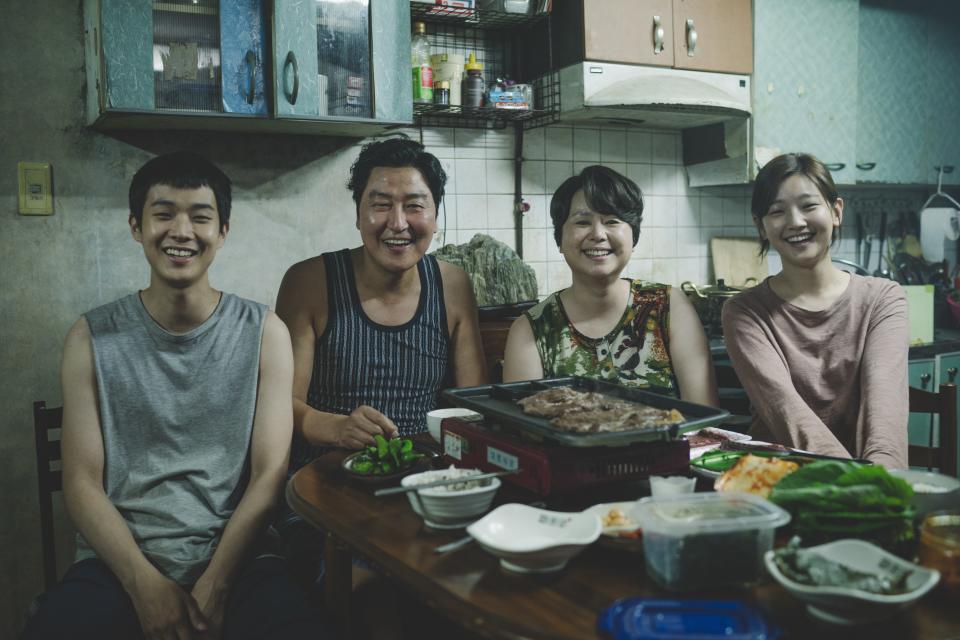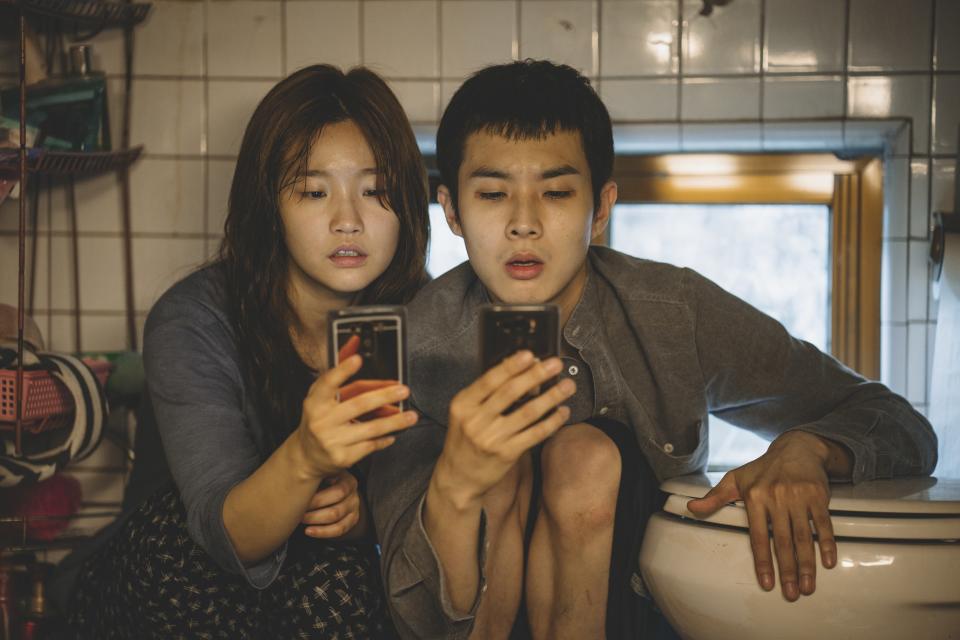10 Reasons Why Parasite May Be 2019’s Best Film
1. For a certain type of person, urgency will be enough. I will attempt that here: If you read writers because you trust them, allow me to thank you—I'm flattered, truly—and then implore you: Parasite, the new film from Korean director Bong Joon-ho, is a tremendous work that might be the most pleasurable experience you have in a movie theater this year. It's so top-to-bottom satisfying that even being completely spoiled couldn't ruin it—but if you can come to it cold, you'll be floored. Don't even watch a trailer. Trust me, and go.
2. If you must know more—there will be no spoilers—the premise is simple enough. The Kim family, underemployed and eager for any opportunity to scrape together a little more cash, isn't having the best time of things. Kim Ki-taek, the patriarch, is an unemployed driver. Together with his wife and two children, the family does odd jobs like folding pizza boxes. Then, an opportunity falls into his son Ki-woo's lap when a friend offers to recommend Ki-woo as his replacement as an English tutor to the daughter of the extremely wealthy Park family. Once he settles into his posh new job, Ki-woo gets an idea: What if he can trick the Parks into hiring his entire family?

3. Bong Joon-ho makes movies that ruin other movies for you. His films disregard the boundaries of genre; their characters resist familiar archetypes. Each one—be it the monster movie The Host, the science fiction thriller Snowpiercer, or the strange drama Okja—begins with one ostensible set of rules before discarding them one at a time in a way that should be disorienting. Instead, you wonder why we bother with rules at all.
4. Parasite is a movie about illusions, which is to say, it is about class and wealth. In watching it, you'll begin to anticipate some of its jabs, and assume the direction in which it will cut. Maybe you'll be right, for a little while. And then you won't be.
5. Before we continue, it's worth underlining in red ink: This movie is funny. Wickedly so. Parasite spares no one in its criticism, it dresses down every target with withering wit and ease. It's also tense, thoughtful, humane, and perhaps frightening. If there is a feeling that a movie can elicit from us, odds are Parasite does so.
6. Much of Parasite's magic comes from the clever ways it puts the wealthy in intimate proximity with the sort of poor people that aren't supposed to interact with them. Is the Kim family cheating with their gambit to become upwardly mobile? Can the Parks even be honest people with such wealth? "Money," as one character notes, "irons out all the wrinkles."
7. Watching this film, I think of the professors and employers and fathers of girlfriends I have stood in front of and listened to as they compliment me on being so articulate and well-spoken. I had stepped across a threshold they did not expect someone like me to haunt, and they had sized me up, and deemed me acceptable. The part that no one ever talks about is the one where I've sized them up too, and decided they were suckers just waiting to hear the right author mentioned, the right album, the right headlines. But that's okay. They're supposed to have the power in this story, and I can let them have it.
8. Maybe if the playing field was truly level we'd all eat each other just the same.

9. Few things in Parasite are as abundantly evident as the way money rewires the brains of those who have it in excess as well as those in desperate need. Wealth buys you out of the social contract—the need to behave a certain way, to tolerate others. Poverty imposes more rules, limitations and boundaries that if unchecked, will suffocate. There is conflict in this: The wealthy become acutely aware of the inconvenience of empathy. The poor laugh darkly at those who plan for the future. "With no plan," Ki-taek says late in the film, "nothing can go wrong… and nothing fucking matters."
At one point in the film, Ki-woo gets a gift. It's a beautiful, decorative stone that barely fits in his family's cramped basement apartment, prone to exposure from both fumigators and pissing drunks alike. Despite his lack of space or use for it, Ki-woo quietly holds it in high regard, keeping it with him throughout the film despite its sheer size and weight. "This stone," Ki-woo says. "It keeps clinging to me." And then I felt a familiar fracture in my chest for envying that same stability, playing the same song for the same set of people, knowing that the game is rigged and always will be. After a while it becomes exhausting, envying the wealthy. And accommodating them.
Originally Appeared on GQ

